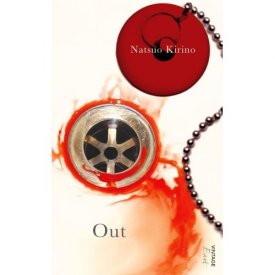grit
kickbox
I tried desperately to figure out Masako's motivation too. The only conclusion I came to is that her background led her to this. She had been a strong, smart and hard-working woman who was underappreciated, disliked and ultimately phased out of her career. Besides her bitterness towards men, perhaps her management skills just kicked in? 
And while it isn't explicitly stated, Jumonji did have the goods on her, so perhaps she felt subtley blackmailed into the second job.
And as for the original Kenji dismemberment, I never felt that Kuniko was a full participant. She walked in on it and then they kind of backed her up against the wall to dispose of a few bags. Which she royally screwed up!
Overall though I think the author was illustrating how apparently normal people will act in unusual circumstances. And of course how a group dynamic will propel events. I enjoy those kinds of stories because it makes one think long and hard about what their own response and actions would be. It's uncomfortable, but provocative.

And while it isn't explicitly stated, Jumonji did have the goods on her, so perhaps she felt subtley blackmailed into the second job.
And as for the original Kenji dismemberment, I never felt that Kuniko was a full participant. She walked in on it and then they kind of backed her up against the wall to dispose of a few bags. Which she royally screwed up!
Overall though I think the author was illustrating how apparently normal people will act in unusual circumstances. And of course how a group dynamic will propel events. I enjoy those kinds of stories because it makes one think long and hard about what their own response and actions would be. It's uncomfortable, but provocative.



